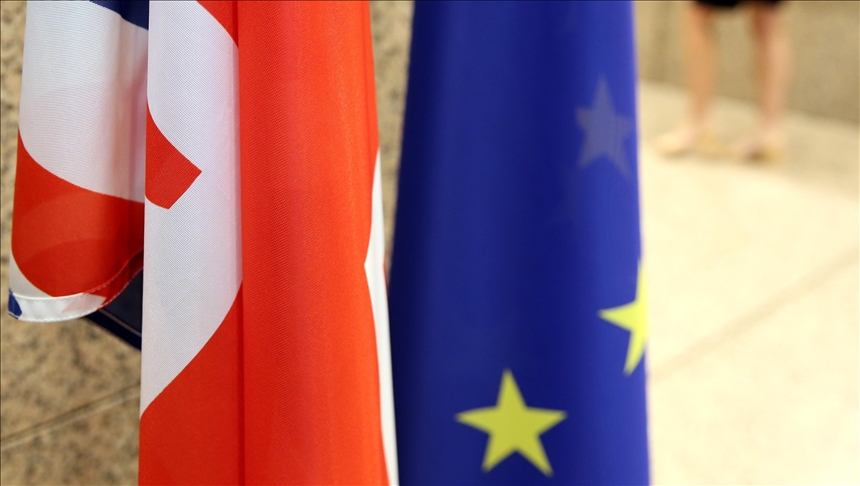EU, UK hold talk on Northern Ireland proposals in Brussels
UK Brexit minister warns of 'long way to go' until partners agree on post-Brexit trade in Northern Ireland
BRUSSELS - The EU proposals on Northern Ireland have “long way to go” until accepted by the UK, British Brexit Minister David Frost said in an interview ahead of his visit to Brussels.
“We do recognize that the EU has made an effort here,” Frost told Politico, referring to the recent proposals of the European Commission in response to the difficulties people in Northern Ireland have been facing after Brexit.
Frost arrived in Brussels on Friday to hold a working lunch with Maros Sefcovic, the vice-president of the European Commission.
In the interview, he stressed that it is the British position “where we need to end up,” adding that “there’s quite long way to go” till the partners find this kind of agreement.
According to Frost, the UK can only accept the new solutions if there is a significant change in the role of the European Court of Justice in overseeing the Northern Ireland Protocol and settling disputes between the bloc and the UK.
The new EU package aims at easing post-Brexit tensions between the bloc and the UK and to ensure the real-life application of the Northern Ireland Protocol of the withdrawal agreement.
In the area of public, plant and animal health, the EU suggests a simplified certification system as well as a system to significantly reduce control for goods transported from other parts of Great Britain to Northern Ireland.
According to the EU’s estimations, this would lead to around 80% fewer identity and physical checks on most of the goods and 50% less red tape.
The bloc also recommended putting an end to the so-called “sausage war” by allowing UK-produced chilled meat products to be sold in Northern Ireland with a specific certificate and to let medicine companies to keep supplying Northern Ireland even if they are based in other parts of the UK.
The EU and UK concluded the special protocol on Ireland and Northern Ireland with the aim of avoiding a hard border in respect of the Good Friday Agreement and at the same time protecting the interests of the EU market.
Northern Ireland remained a part of the EU’s customs regime, while the UK agreed to apply customs checks for goods coming from Northern Ireland.
The UK left the EU last year after 47 years of membership on Jan. 31, 2020.

